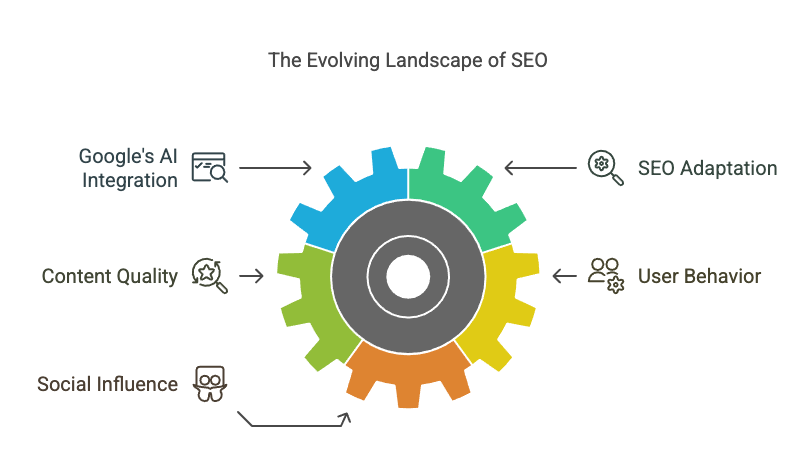As I’m certain many of you are already aware, Google recently acquired Deepmind, an artificial intelligence firm with a focus on machine learning.
You’d be forgiven for thinking the corporation is looking to augment its new army of robots with better intelligence (all the better to kick off the machine uprising with?).
After all, this purchase came directly on the tail end of a flurry of robotics acquisitions, of which Boston Dynamics was the capstone. And while smart robots could certainly be in Google’s future, that isn’t the reason Google bought the startup.
See, what a lot of people appear to have forgotten in light of Google’s recent innovations and inventions is that it is, at its core, about search.
When Larry Page and Sergey Brin first founded the company back in 1986, they set out to build a better search engine. Although their success has allowed the organization to branch out into pretty much any technological field it sees fit, the goal of building a better web remains the bread and butter of Google.
Consequently, it comes as little surprise. Numerous sources close to Google indicate that Google is incorporating Deepmind into its “Knowledge” group. This group aims to enhance Google’s search engine’s ability to find what its users seek. [Name] leads this group. 15-year Google veteran Jeff Dean.
There, the Deepmind team will work closely with Ray Kurzweil. He has made it abundantly clear that he dreams of one day building a search engine so advanced that it could function like a ‘cybernetic friend.’ In short, although machine learning is core to most everything Google does, the primary purpose of Deepmind will likely be to help its search engine become smarter than ever before.
Google’s DeepMind
Google’s DeepMind buy would add smarts to search robots and homes. Their approach is strategic. Consequently, it will make the massive amounts of data they are mining far more useful, functioning as both a tool and a weapon.
Furthermore, this could result in a metamorphosis for Google. Specifically, it might mark the point at which it evolves from a search engine into…well, something else entirely. An answers engine, I suppose?
Optimization tactics and techniques are based on Google’s search engine ranking process. Specifically, Google ranks pages according to algorithms. While these algorithms have become progressively more complex over the years, it is still possible to devise methods to leverage them.
This holds true even if a full understanding of these algorithms remains elusive. But what exactly happens when Google makes its search smart enough to ‘think’ for itself?
What happens when the rank of page is determined not by keywords, links, and shares; but instead is directly and perfectly tailored to what a user is looking for?
The answer seems clear: SEO becomes effectively irrelevant. Content truly becomes king, and where a page ranks in search becomes a matter of quality above all else. SEO finally dies for good.
If only things were so simple.
SEO isn’t going to die anytime soon, even with Deepmind. What’s more, this artificial intelligence buzz isn’t the first time we’ve seen people remark that SEO is on the way out.
Remember when everyone was saying Facebook would kill the search engine optimization? Long story short, it didn’t – SEO techniques changed to adapt to the new Internet landscape, just as they will with AI.

My prediction?
In the short term, things aren’t likely to change much. Google’s search engine will improve its ability to sift through unstructured data. It will also become more adept at predicting what its users are looking for.
Consequently, SEO techniques will end up focusing less on keywords and more on phrases and structure; tailoring pages to how a particular demographic might talk or think. Authority sites will retain their status. Social shares will continue to hold great importance. Nevertheless, the identity of those who share an article might receive increased focus.
Many have said that SEO is currently dying a slow death. Google’s push into artificial intelligence, they claim, marks the final nail in the coffin. I don’t believe this to be the case – SEO is a remarkably resilient field of work.
So long as search engine exists, there will be techniques and tactics designed to make a page rank higher. While these tactics might change with the times, they’ll always be around, as will the men and women who devise them.




